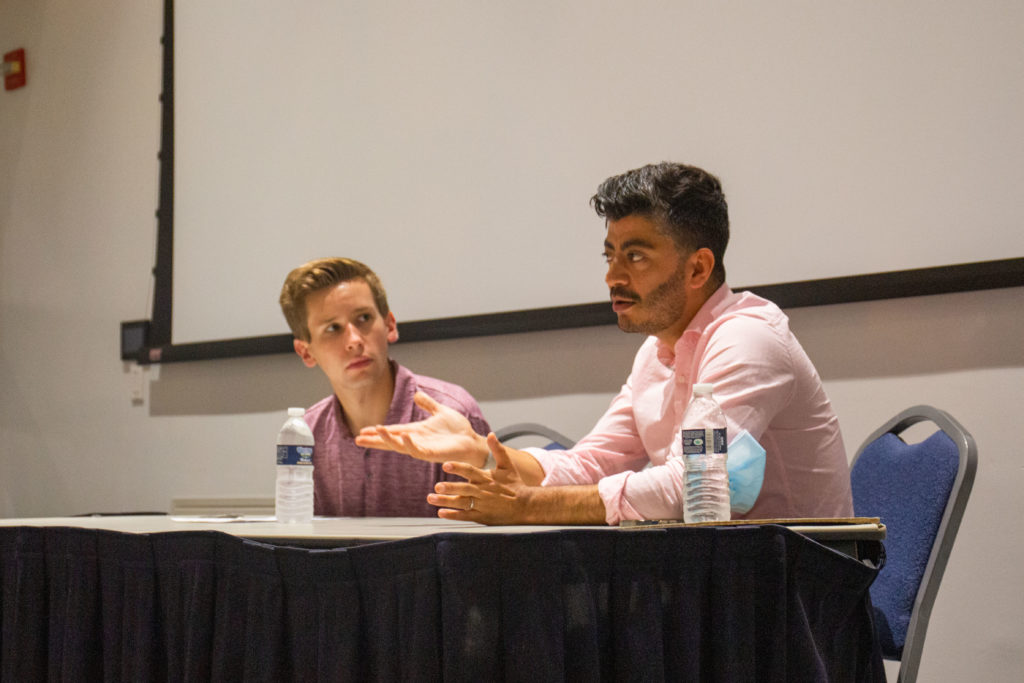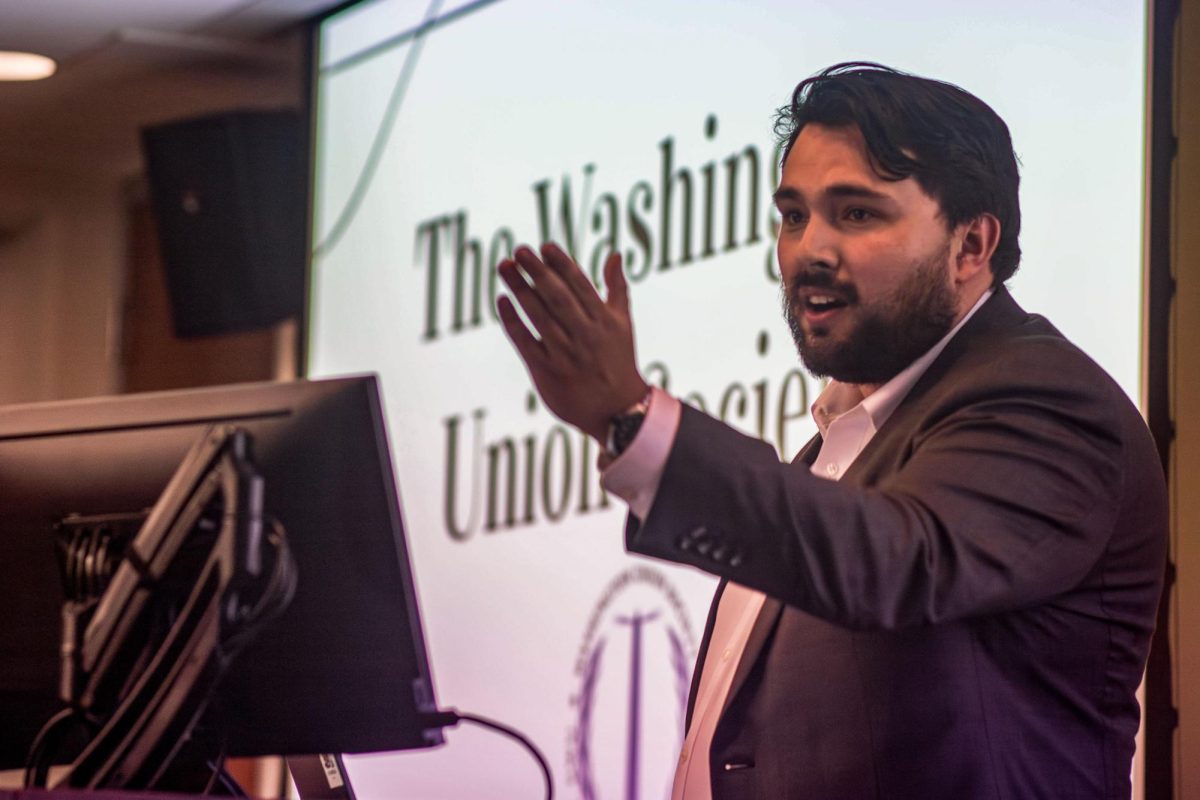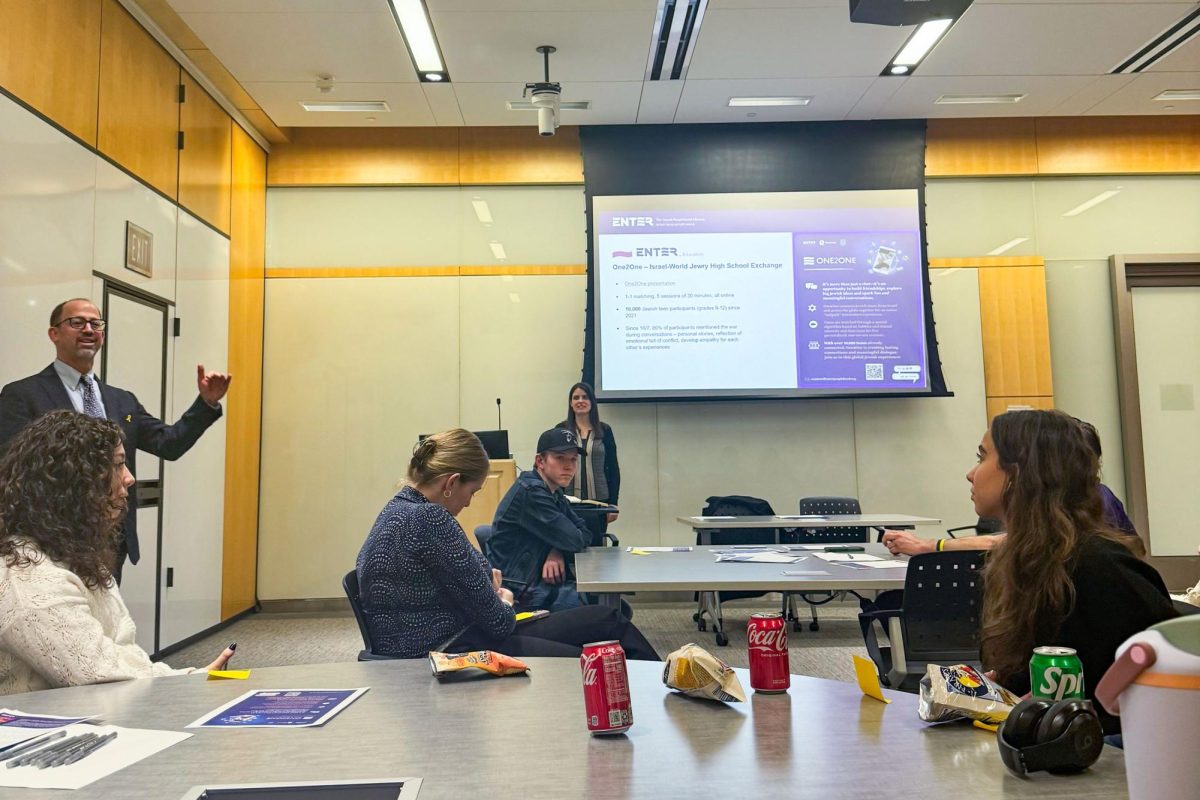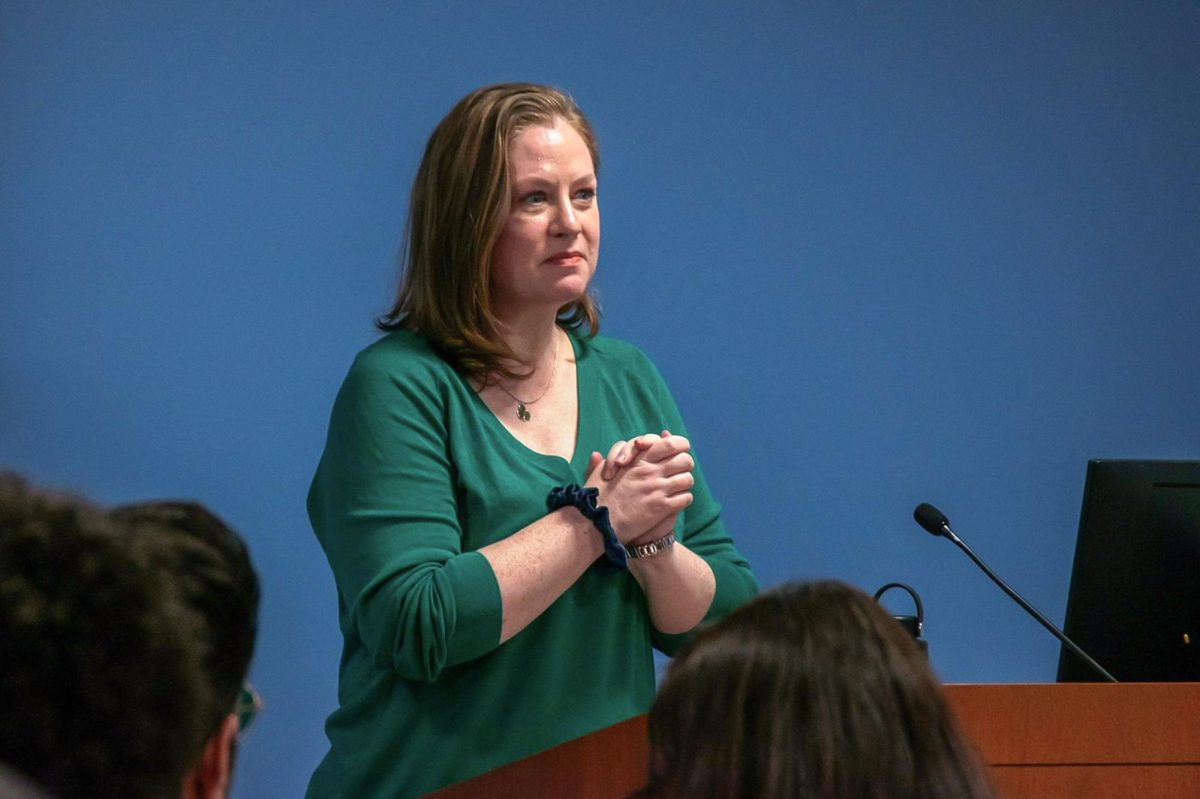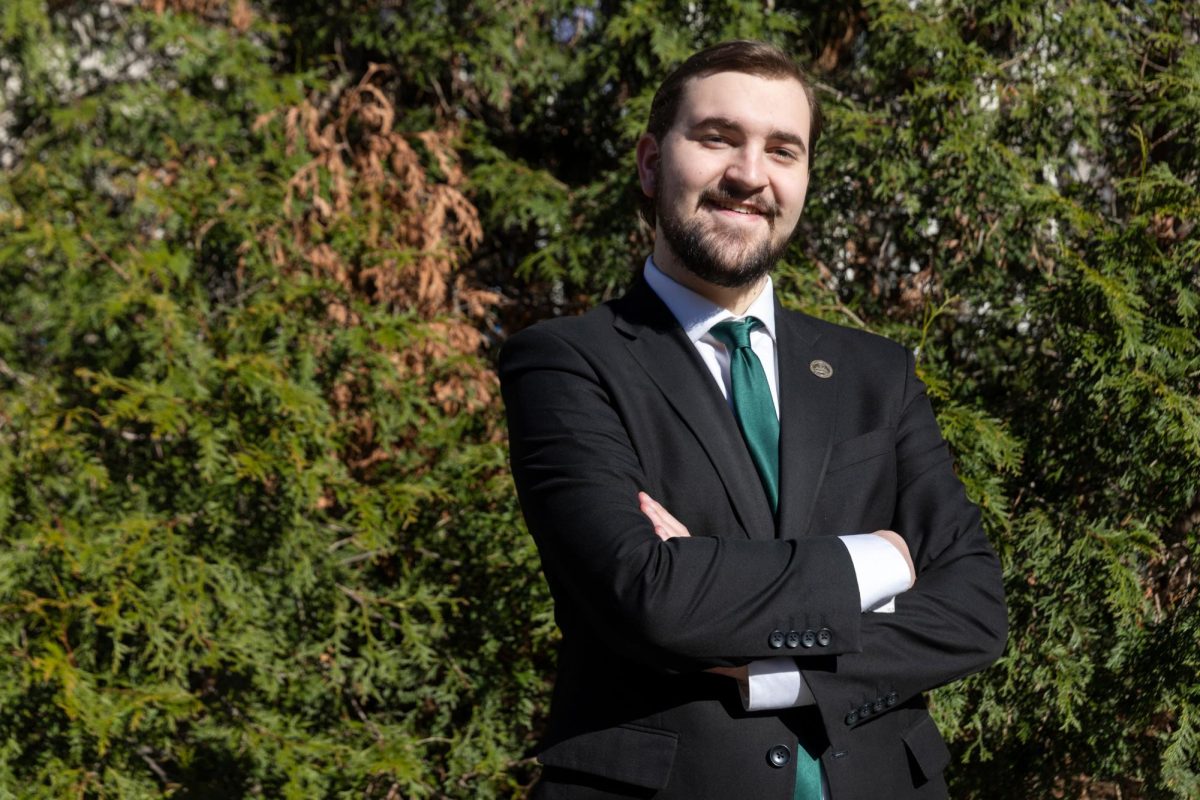A humanitarian worker who fled from Afghanistan discussed his journey to the U.S. and his work with the Office of Refugee Resettlement at an event Tuesday.
Zafar Azam – who works in the Office of Refugee Resettlement, a branch of the Department of Health and Human Services – talked about his experience as a refugee and the issues people fleeing conflicts like those in Ukraine and Afghanistan face. No Lost Generation GW, a student organization that advocates for and supports refugees, hosted the event, which was moderated by Sean McCarthy, the Fall Director of Government Relations of No Lost Generation GW.
Azam said he was born in Afghanistan during the 1990s, a time period in the country marked by turmoil due to the civil war and the first Taliban takeover. He said he fled Afghanistan as a child with his five siblings and his mother due to the Taliban takeover in the mid-1990s.
“We were stopped a lot of times, and we made it into Pakistan,” Azam said. “There were a few years for my family until we got accepted as refugees and moved here.”
Azam said he and his family moved to Iowa after being granted refugee status to live in the United States. But, he said the process of leaving his home and adapting to a new home in the United States exhausted his family.
“I can remember the first two years, my mom still wanted to just go back home,” Azam said.
Azam said he joined the Office of Refugee Resettlement to help Afghan refugees adapt to their new homes in the wake of the U.S. pulling out of Afghanistan. He said he uses his experience in his job talking with refugees to “shape” policy and build programs.
“We actually just started a new team, it’s kind of the work that I’ve been doing and doing more community outreach, talking with the refugees themselves instead of just resettlement agencies and contractors,” Azam said.
Azam said individuals have many opportunities to support refugees during their resettlement in the United States whether through advocacy work or helping individual refugees by working with local organizations that assist in resettling refugees. He also advocated for the passage of the Afghan Adjustment Act, a bill in the U.S. Congress in August by Sen. Amy Klobuchar, D-Minn., that aims to expand “eligibility for special immigrant visas to certain Afghan nationals,” like former members of the Afghan Air Force.
“You have to take initiative and just be curious and look and see what you can do,” Azam said. “I was always great about plugging myself into everything wherever I can. To say something or offer my help, I would do that.”


